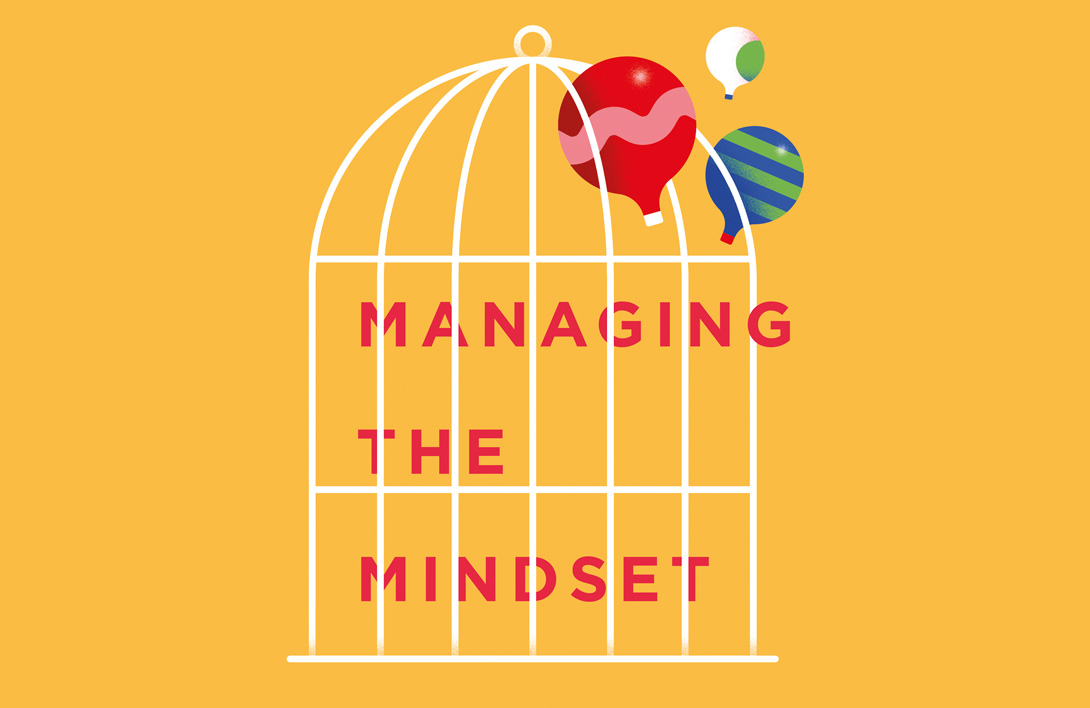The Power of Positive Thinking for Rural Business Leaders
Running a successful land-based business calls for a range of personal attributes – and one that can be overlooked is the power of positive thinking.
British farmers take a huge amount of pride in the welfare of their livestock.
They do it brilliantly because it’s the right thing to do and because, as they often remark, they know that a ‘happy’ animal is a more productive one.
It suggests that we instinctively understand the value of happiness in relation to our stock, so why is it that we often ignore it in relation to ourselves and our staff?
People who work in rural-based businesses have a reputation for being a stoical breed. They’re practical. They get the job done. They don’t make a fuss. While recent years have seen a wider appreciation of the importance of looking after one’s physical health, many are still sceptical when it comes to the notion of wellbeing.
‘Happiness’ is, of course, an ephemeral concept. We know it when we feel it, but it’s complex and subjective, and as a word it isn’t always helpful, conjuring up images of smiley emoji and good cheer.
The Greeks defined happiness as ‘the joy we feel striving for our potential’, which is perhaps closer to current thinking about what makes life fulfilling. To flourish in life, we actually need five things: positive emotion, engagement, relationships, meaning and accomplishment. These are the building blocks of wellbeing and the key to a better life.
The science is clear on why this is so important. When we are more positive every single business outcome is enhanced, we are less likely to be ill and we live longer. We are more engaged, more creative and more productive. Fear-based thinking is replaced by good decision-making. We are better at processing possibility and finding meaning.
With massive changes underway in the countryside, the benefits positive thinking can bring – such as better decision-making and improved innovation – mean that the way we think is becoming more important than ever.
It is sometimes argued that people can’t change their personalities and that their mental attitude is set, baked in at birth. Admittedly, some of us are by nature more positive than others, but everybody can move themselves at least some of the way from negativity, to the benefit of themselves, their families, colleagues and businesses.
After all, the brain is plastic – it’s malleable and trainable. Think about what it does: it’s basically a massive filter, absorbing countless pieces of information every second through the senses, then filtering out all but a minuscule proportion. Two people, even at opposing ends of the negative-positive range, see the same reality, but filter out different things, according to how their brains work. That filter is the lens through which they see life and which determines how they then behave. We can change the lens so we see life in a different way.
If this all sounds a bit ‘new age’ and of little relevance to day-to-day life, it’s worth bearing in mind it’s a concept that even the US military take seriously. They have worked with the University of Pennsylvania to train military personnel in effective mental resilience and wellbeing.
This work has reduced levels of anxiety, depression and Post Traumatic Stress Disorder (PTSD) and shown that while stress might be an inevitable part of life its effects do not have to be. It highlights the role of positive psychology in equipping us for the tough challenges life can present us all. It proves how adopting a more positive mindset makes us more able to deal with setbacks and cope with – indeed, enjoy – change.
The coronavirus pandemic is testing everyone’s resilience. Add to that the fact that the countryside stands on the brink of a period of massive transformation and it is easy to see why some may feel anxious and stressed by life.
Being optimistic in such testing times is tough, but rational optimism in such circumstances helps make sure we are best placed to identify and capitalise on the opportunities that the future will bring.
This then begs the question: If we don’t feel positive now, what can we do about it?
One simple, practical way is to write down – or share with loved ones, friends or colleagues – three things that have made you feel good or for which you have felt grateful in the previous 24 hours.
They might be small (the steak you had for supper or a chat with a friend) or might be larger (one’s health, family or a satisfying workplace initiative). All too often, we focus on the negatives, but carrying out this exercise regularly begins to transform our perceptions and can change our outlook on life and work. Acts of kindness and investing time in building relationships are also helpful.
Another of the cornerstones of positive psychology is focusing on – and playing to – your strengths. Business people launching or developing new enterprises are inherently more likely to succeed if they are passionate about them and if they’re aligned to their personal values.
Investment choices that are driven by a real sense of purpose and meaning and not just by financial metrics are more like to be future-proofed. When we are making decisions, before we decide the ‘what?’ we have to understand the ‘why?’
The more each of us can understand how we think – and build more positivity into our default position – the better equipped we’ll be to flourish in the years ahead. Mindset really does matter.
This article first appeared in the Spring/Summer 2020 issue of Land Business. For more download the full Land Business Spring/Summer 2020 publication.






